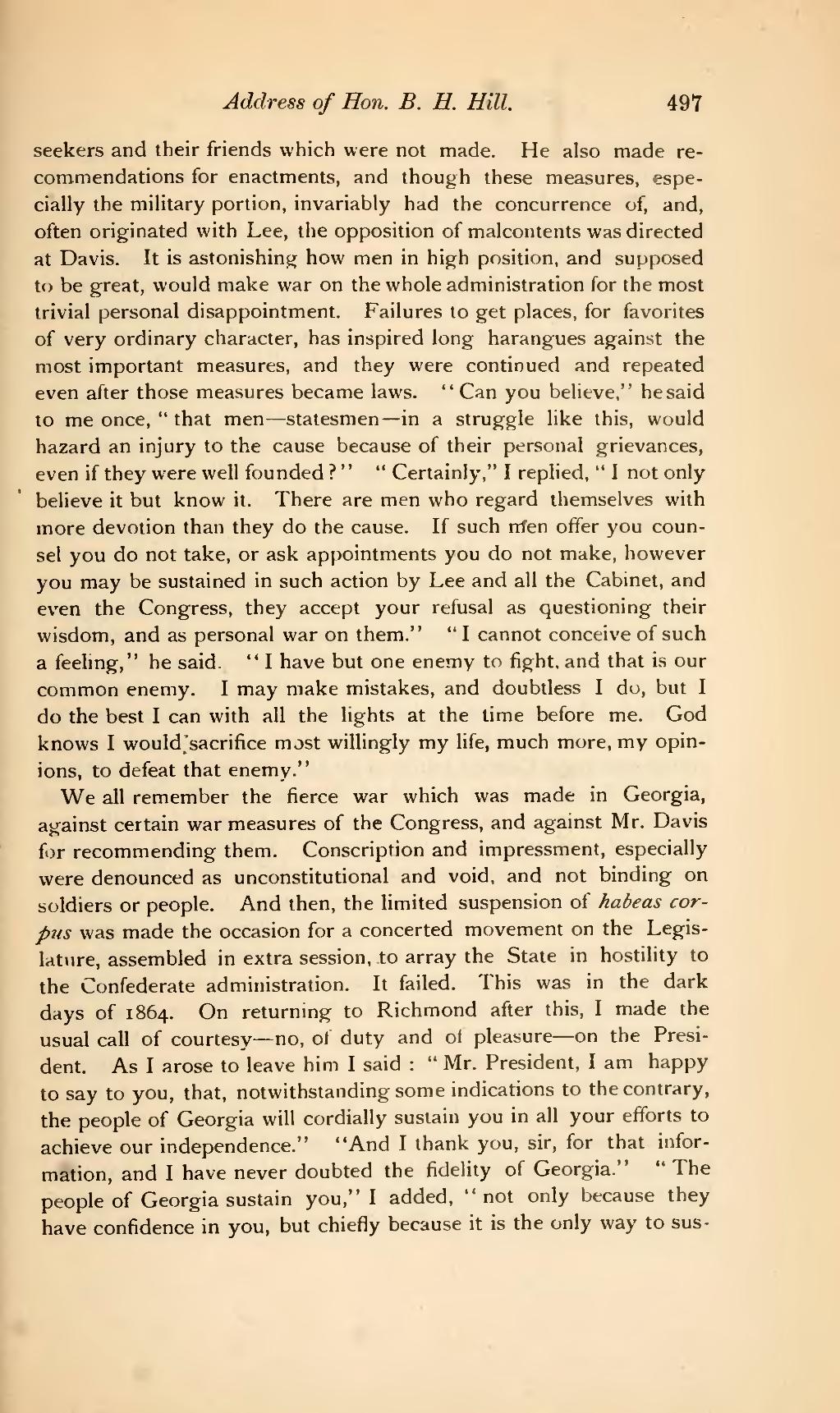Address of Hon. B. H. Hill. 497
seekers and their friends which were not made. He also made re- commendations for enactments, and though these measures, espe- cially the military portion, invariably had the concurrence of, and, often originated with Lee, the opposition of malcontents was directed at Davis. It is astonishing how men in high position, and supposed to be great, would make war on the whole administration for the most trivial personal disappointment. Failures to get places, for favorites of very ordinary character, has inspired long harangues against the most important measures, and they were continued and repeated even after those measures became laws. " Can you believe," he said to me once, " that men — statesmen — in a struggle like this, would hazard an injury to the cause because of their personal grievances, even if they were well founded ? " " Certainly," I replied, " 1 not only believe it but know it. There are men who regard themselves with more devotion than they do the cause. If such rrlen offer you coun- sel you do not take, or ask appointments you do not make, however you may be sustained in such action by Lee and all the Cabinet, and even the Congress, they accept your refusal as questioning their wisdom, and as personal war on them." " I cannot conceive of such a feeling," he said. " I have but one enemy to fight, and that is our common enemy. I may make mistakes, and doubtless I do, but I do the best I can with all the lights at the time before me. God knows I would^'sacrifice most willingly my life, much more, my opin- ions, to defeat that enemy."
We all remember the fierce war which was made in Georgia, against certain war measures of the Congress, and against Mr. Davis f)r recommending them. Conscription and impressment, especially were denounced as unconstitutional and void, and not binding on soldiers or people. And then, the limited suspension of habeas cor- pus was made the occasion for a concerted movement on the Legis- lature, assembled in extra session, to array the State in hostility to the Confederate administration. It failed. This was in the dark days of 1864. On returning to Richmond after this, I made the usual call of courtesy— no, of duty and ot pleasure — on the Presi- dent. As I arose to leave him I said : " Mr. President, I am happy to say to you, that, notwithstanding some indications to the contrary, the people of Georgia will cordially sustain you in all your efforts to achieve our independence." "And I thank you, sir, for that infor- mation, and I have never doubted the fidelity of Georgia." " The people of Georgia sustain you," I added, "not only because they have confidence in you, but chiefly because it is the only way to sus-
